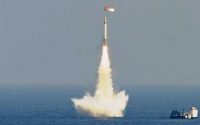Civilianisation of military law and the challenges ahead
Source – dnaindia.com
The term civilianisation denotes the incorporation of civilian values into military life. The process of civilianisation is subtle and occurs either through the exposure of military personnel to civilian legal culture or through the introduction of civilian lawyers into the military legal system. The first landmark judicial intervention in the military legal system in India took place in 1982, when the Supreme Court, in Lt Col PPS Bedi’s case, criticised the military justice system, calling it archaic and antiquated. The SC also pointed out a glaring deficiency in the military law, viz the absence of the remedy of appeal against the orders of court-martial. The judgement stirred a debate on the need for an appellate court for the Armed Forces in India.
Buckling under pressure, the Government introduced the Armed Forces Tribunal Bill in Parliament in 2005. Finally, after 25 years since the Supreme Court decision, the Parliament passed the Armed Forces Tribunal Act, 2007. The principal bench of the Armed Forces Tribunal (AFT) was inaugurated on August 8, 2009. The AFT was established under Article 246 of the Constitution. A total of 15 benches have been created across India. The Benches of Tribunal also have the power to hold circuit benches with prior approval of the chairperson.
Jurisdiction
The AFT has original jurisdiction over service matters and appellate jurisdiction against an order, finding or a sentence passed by a court-martial. The AFT has no jurisdiction in matters relating to (i) order of dismissal invoking the doctrine of Presidential pleasure (ii) transfers and postings, (iii) leave; (iv) summary trials, except where the punishment is of dismissal; and (iv) summary court-martial, except where the punishment is of dismissal or imprisonment for more than three months. The inclusion of “summary court-martial” in the definition of “service matters”, under the ‘original jurisdiction’ of the AFT is, however, contentious.
The AFT in India has been successful in providing relief to a large number of serving and retired military personnel. When compared to appellate forums in other democracies, the AFT is superior in its jurisdiction. At the same time, there are a few deficiencies in its jurisdiction and functioning, which make the process of justice troublesome.
Shortcomings
The AFT is not empowered to intervene in matters relating to summary trials, leave, and transfers and postings. As regard to its appellate jurisdiction, the tribunal is devoid of its jurisdiction in cases of summary court martial where punishment awarded by the court is less than three months of imprisonment or dismissal.
The AFT Act does not make any provision for legal aid. Insufficiency of legal aid poses a serious handicap for the Armed Forces personnel approaching the tribunal. The question of legal aid becomes more pertinent in the context of the Armed Forces because the fundamental rights of those serving in the forces have been abrogated by the Constitution. Under Section 15 (6) of the AFT Act, the Tribunal has the power ‘to enhance the punishment awarded by a court-martial’. It is against the fundamental principles of natural justice as such ‘coercive’ power is not exercised by the military appellate courts in other democracies.
The AFT has been given the power to punish people for committing contempt of proceedings in the court (ie, criminal contempt). However, if any order has not been followed by the government officials, the AFT lacks the power to get their orders executed by way of civil contempt. This is a serious lacuna.
On June 1, 2017, the Ministry of Finance notified The Tribunal, Appellate Tribunal, Tribunal and other Authorities (Qualifications, Experience and other Conditions of Service of Members) Rules, 2017. In contrast to the earlier provision in AFT Act, so far, the appointment of an administrative member was confined to retired major generals and retired judge advocate general. The Rules of 2017 now provide that any person “of ability, integrity and standing… which in the opinion of the Central Government, is useful to the Armed Forces Tribunal” could be appointed as an administrative member. The amended law does not require a member to have any expertise in law or military ethos. This dilution of membership of an important appellate tribunal appears unjustified.
The creation of an AFT has been the first step in the civilianisation of military law in India. It has a mix of civilian judges and retired military officers. But that does not necessarily mean there will not be future changes to the military legal system, including additional civilianisation. The government must take effective steps to balance the demands of justice with the need to maintain order and discipline in the three services.



